In Nigeria, autism spectrum disorder (ASD) remains a condition shrouded in mystery and misunderstanding. While the world has made notable strides in autism awareness and acceptance, Nigeria continues to struggle with outdated perceptions, cultural stigmas, and inadequate support systems for individuals with autism and their families.
To create a more informed and accepting society, we must confront these challenges head-on, breaking down the barriers that isolate autistic individuals and their families.
This article will guide you through the current situation in Nigeria, highlighting cultural stigmas and presenting practical steps toward fostering a society that understands and embraces neurodiversity.
The State of Autism Awareness in Nigeria: A Mixed Reality
If you’re familiar with autism globally, you’ll know that awareness has expanded significantly over the last few decades. In many parts of the world, autistic individuals are increasingly embraced, understood, and supported.
Unfortunately, the same cannot be said for Nigeria. Here, autism awareness is limited, and misconceptions are rampant. Many Nigerians still view autism as a form of curse.
This misconception results from a significant lack of education and awareness campaigns. Despite the fact that autism affects millions of people worldwide—including in Nigeria—it is still seen as a rare or mysterious condition.
Rather than recognizing autism as a neurological difference that affects how a person communicates and interacts with others, many view it as an illness or, worse, the result of poor parenting.
The lack of accurate information has led to underreporting of autism cases. In Nigeria, official data on the number of autistic individuals is scarce, in part because many families feel the need to hide their children’s condition due to societal stigma. As a result, public health interventions remain minimal, and resources for support are woefully insufficient.
Cultural Stigmas: The Burden of Misunderstanding
Nigeria is a nation deeply rooted in tradition, and unfortunately, these cultural beliefs often work against autism awareness. If you or someone you know is affected by autism, you’re probably familiar with the wide array of superstitions and spiritual interpretations that still surround the condition.
In many parts of the country, autism is not seen as a medical condition but as a spiritual one. Some believe it’s the result of witchcraft, a divine punishment, or a curse placed on the family.
This leads many families to seek help from traditional healers or religious leaders rather than seeking medical or therapeutic intervention. While spiritual support can offer comfort, it often delays or entirely prevents autistic children from receiving the care they need.
It also needs to be pointed out that families frequently hide their children from the community due to fear of judgment or isolation. There is immense societal pressure to have children who fit within certain behavioral norms, and when a child with autism doesn’t, the family may be ostracized.
For parents, particularly mothers, the weight of this burden is enormous. Many mothers are blamed for their child’s condition, either due to perceived failures in parenting or because of superstitious beliefs.
This cultural stigma is further exacerbated by the lack of language to describe autism in many Nigerian dialects. When there are no words for something, it becomes harder to understand and accept it among local people.
The absence of an appropriate vocabulary to explain autism contributes to the deep confusion surrounding it.
The Impact on Families and Individuals
If you are a parent or caregiver of an autistic individual, the challenges you face are profound. Emotional, financial, and societal pressures can make it incredibly difficult to navigate daily life.
From finding appropriate healthcare to securing educational support, Nigerian families dealing with autism are often left to fend for themselves.
The emotional toll on families is considerable. Many parents of autistic children express feelings of isolation and helplessness. Due to the stigma, you may feel the need to hide your child’s condition, preventing you from reaching out for support. The financial strain is another significant burden.
Private care and specialized educational services are expensive, and there are very few affordable or publicly funded resources available to families. For many, the cost of care is out of reach.
When it comes to education, the situation is similarly dire. Most Nigerian schools are not equipped to accommodate autistic students. If you’re lucky enough to find a school willing to enroll your child, chances are they don’t have the specialized staff or programs necessary to meet your child’s needs.
As a result, many children with autism are either excluded from education altogether or placed in environments where they can’t thrive.
For adults with autism, the barriers are even higher. Employment opportunities are scarce, and the lack of understanding about autism means that employers are often unwilling to make necessary accommodations.
This exclusion from the workforce further marginalizes autistic individuals, limiting their ability to live independently and contribute to society.
Breaking Down the Barriers: Steps Toward Change
Despite these challenges, there is hope. The journey toward autism awareness and acceptance in Nigeria is underway, thanks to the efforts of NGOs, civil society, and a few progressive government initiatives. However, much more needs to be done, and you can be part of the change.
One critical area for improvement is government policy. Currently, Nigeria has no comprehensive policies specifically addressing autism. However, some progress has been made.
The Disability Act, which was signed into law in 2018, following 9 good years of relentless advocacy by disability rights groups and activists offers some protection for people with disabilities, including those with autism, but implementation remains a challenge.
NGOs have been instrumental in filling the gaps left by the government. Organizations such as the Patrick Speech and Languages Centre in Lagos provide education and support for autistic individuals and their families.
They offer therapy services, educational programs, and training for parents and caregivers. These grassroots initiatives are essential, but they are often underfunded and cannot meet the overwhelming demand.
Media also plays a crucial role in shaping public perception. You can help raise awareness by supporting efforts to normalize conversations about autism through TV programs, radio shows, and social media campaigns.
Public figures, including celebrities and religious leaders, can help combat stigma by sharing stories of families affected by autism and advocating for greater understanding and inclusion.
Practical Solutions for a More Inclusive Society
To create a more inclusive society for autistic individuals, we need to address several key areas, starting with education. Training teachers and school administrators to recognize and support autism is essential.
Schools must also offer specialized programs that accommodate the unique needs of autistic students. Early intervention programs, which are proven to significantly improve outcomes for autistic children, should be widely available and affordable.
In the healthcare sector, early diagnosis and intervention are critical. However, many Nigerian healthcare professionals lack the training to diagnose autism accurately.
You can advocate for better training for doctors, nurses, and other healthcare providers so that autism is recognized and addressed from an early age.
Additionally, affordable and accessible therapy services—such as speech, behavioral, and occupational therapies—are vital for helping autistic individuals reach their full potential.
Creating community-based support networks is another practical solution. By establishing centers where families can receive counseling, access resources, and meet others going through similar experiences, we can reduce the sense of isolation that so many families feel.
These centers could offer workshops, support groups, and autism-friendly activities, providing a safe space for autistic individuals to grow and develop.
Fostering Acceptance: A Roadmap for the Future
It’s not enough to just raise awareness about autism; acceptance is the ultimate goal. To build a more inclusive Nigeria, we need to change how people think about and treat autistic individuals. You can help by supporting grassroots campaigns that challenge stereotypes and encourage empathy.
Education is key to changing perceptions. Schools, churches, mosques, and community centers can all play a role in teaching the public about autism and neurodiversity. By including autism education in school curricula, we can raise a generation of Nigerians who are more understanding and accepting of differences.
Beyond awareness and education, inclusivity means actively welcoming autistic individuals into every facet of life. From employment opportunities to social participation, society must embrace the contributions of people on the autism spectrum.
You can make a difference by advocating for inclusive policies at work, in schools, and in the community.
Conclusion: A Call to Action
Solving Nigeria’s autism challenge requires collective effort. The government, civil society, and the public all have roles to play. But you don’t have to wait for systemic change to begin making a difference.
Whether it’s through educating yourself and others, advocating for better policies, or supporting NGOs working on the frontlines, there are practical steps you can take today.
Although the road ahead is long, there is hope. Slowly but surely, organizations, advocates, and families across Nigeria are making progress in breaking down the barriers that autistic individuals face.
By challenging the stigmas and promoting understanding, we can build a more inclusive future where everyone, regardless of their neurological makeup, is valued and accepted.


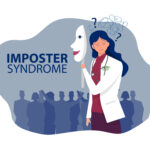





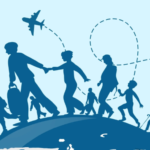




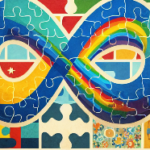
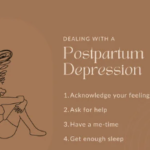




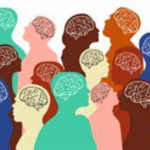
One Response
It’s rare to come across texts that educate, inspire, and enchant all at once! Your article is not just a collection of information – it’s a true feast for the mind.